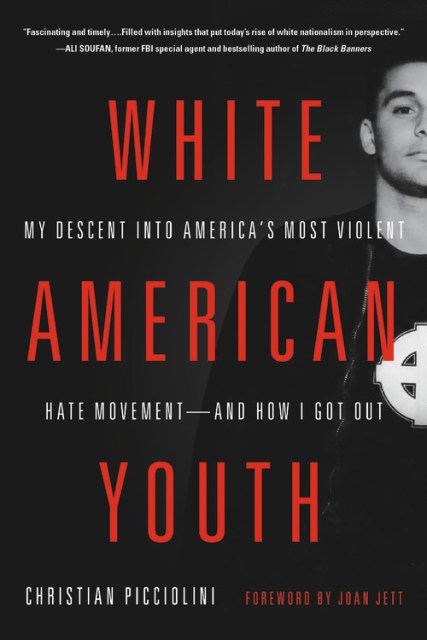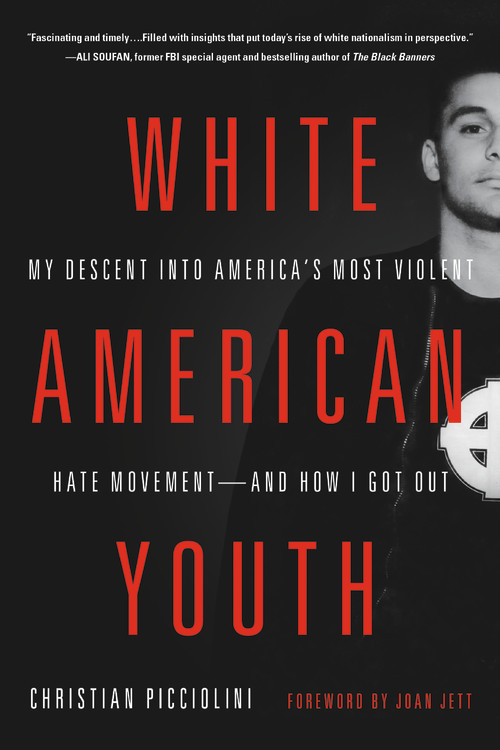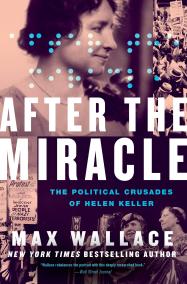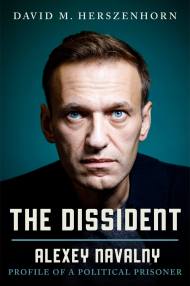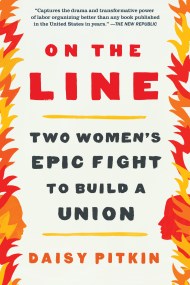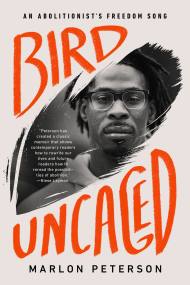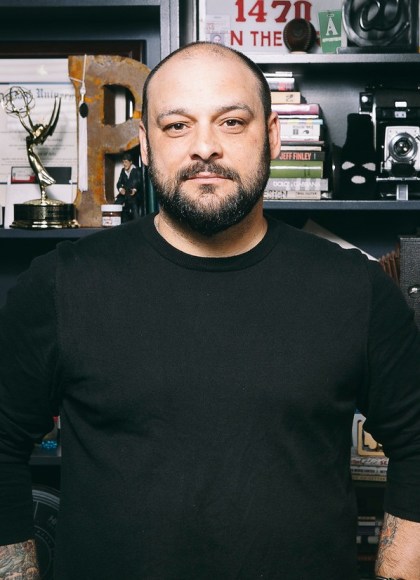Promotion
Use code MOM24 for 20% off site wide + free shipping over $45
White American Youth
My Descent into America's Most Violent Hate Movement -- and How I Got Out
Contributors
Formats and Prices
Price
$11.99Price
$14.99 CADFormat
Format:
- ebook (Digital original) $11.99 $14.99 CAD
- Audiobook Download (Unabridged)
- Trade Paperback $17.99 $22.99 CAD
This item is a preorder. Your payment method will be charged immediately, and the product is expected to ship on or around October 24, 2017. This date is subject to change due to shipping delays beyond our control.
Also available from:
Raw, inspiring, and heartbreakingly candid, White American Youth explores why so many young people lose themselves in a culture of hatred and violence and how the criminal networks they forge terrorize and divide our nation. The story begins when Picciolini found himself stumbling through high school, struggling to find a community among other fans of punk rock music. There, he was recruited by a notorious white power skinhead leader and encouraged to fight with the movement to “protect the white race from extinction.” Soon, he had become an expert in racist philosophies, a terror who roamed the neighborhood, quick to throw fists. When his mentor was sent to prison, sixteen-year-old Picciolini took over the man’s role as the leader of an infamous neo-Nazi skinhead group.
Seduced by the power he accrued through intimidation, and swept up in the rhetoric he had adopted, Picciolini worked to grow an army of extremists. He used music as a recruitment tool, launching his own propaganda band that performed at white power rallies around the world. But slowly, as he started a family of his own and a job that for the first time brought him face to face with people from all walks of life, he began to recognize the cracks in his hateful ideology. Then a shocking loss at the hands of racial violence changed his life forever, and Picciolini realized too late the full extent of the harm he’d caused.
“Simultaneously horrifying and redemptive” (AlterNet), White American Youth examines how radicalism and racism can conquer a person’s way of life and how we can work together to stop those ideologies from tearing our world apart.
*An earlier edition of this book was published as Romantic Violence
Genre:
-
"Christian Picciolini offers a vivid illustration of the path to extremism...a strange, toxic inversion of the American Dream."New York Review of Books
-
"Fascinating and timely....Written with first-hand knowledge and authority...White American Youth not only tells Picciolini's gripping story, but it is filled with rare insights that put today's rise of white nationalism in perspective."Ali Soufan, former FBI special agent and New York Times bestselling author of The Black Banners: The Inside Story of 9/11 and the War Against al-Qaeda
-
"Describes the importance of empathy--how receiving it from others at a time when [Picciolini] felt he least deserved it was lifesaving, helping to pull him out of extremism."New York Times Book Review
-
"Simultaneously horrifying and redemptive."AlterNet
-
"White American Youth takes the reader into the depths of the hate movement and sheds a valuable light on the mindset of those who can be lured into this dark world. Christian's astonishing change of heart is a testament to our endless capacity for personal transformation."Lonnie Nasatir, regionaldirector, Anti-Defamation League
-
"Chilling...What we have in Christian Picciolini is something of an informant. He asks us to understand, yes, but not with the intention to excuse--rather the hope to dismantle. He is an unabashed truth-teller, and a willing weapon against hate and bigotry all over the world."Rooster Magazine
-
"Christian's journey exemplifies how hate and violence are unsustainable, and tolerance, forgiveness, and love are the only ways forward. If Christian can change, there is hope for all humankind--a compelling and extraordinary story."Jane Rosenthal, Co-Founder, Tribeca Film Festival
-
"If it's disturbingly easy to embrace the white power ideology, it's not as easy to leave behind. Christian's experiences in White American Youth will shock you, but it's his escape and transformation that will inspire. His honest, often brutal memoir charts a journey from hopelessness to redemption. A profoundly important book, and a riveting read."John Horgan, author of The Psychology of Terrorism
-
"Like a skinhead Goodfellas, White American Youth takes us along on a young man's journey to the dark heart of a distasteful organization, somehow making the narrator's descent every bit as understandable and compelling--and all the more tragic. It's a powerful and moving memoir that brought tears to my eyes."Gerald Brennan, author of Resistance, Zero Phase, and Public Loneliness
- On Sale
- Oct 24, 2017
- Page Count
- 336 pages
- Publisher
- Hachette Books
- ISBN-13
- 9780316522915
Newsletter Signup
By clicking ‘Sign Up,’ I acknowledge that I have read and agree to Hachette Book Group’s Privacy Policy and Terms of Use
